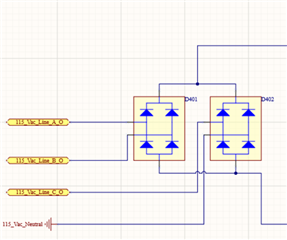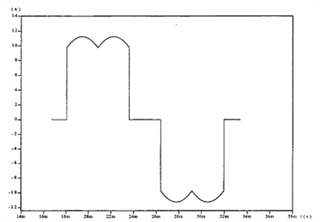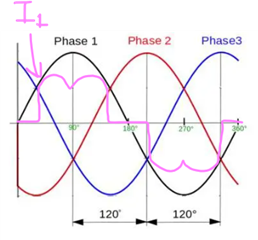Other Parts Discussed in Thread: UCC28070A
Hello,
I will rectify the 3 Phase 400 Hz 115 VAC input supply to DC (270 VDC) with the bridge rectifiers shown in the figure, and then apply boost PFC to 450 VDC with the UCC2818-EP integrated circuit. In this case, the ripple frequency will be 2.4 kHz. There is no restriction regarding line frequency in any PFC control IC. Another reason why I do not prefer UCC2818-EP is that its temperature features are suitable for application. Is UCC2818-EP suitable for this application?
Kind regards.




 Phase-currents I2 and I3 will be the same as I1, but shifted 120-degrees.
Phase-currents I2 and I3 will be the same as I1, but shifted 120-degrees.